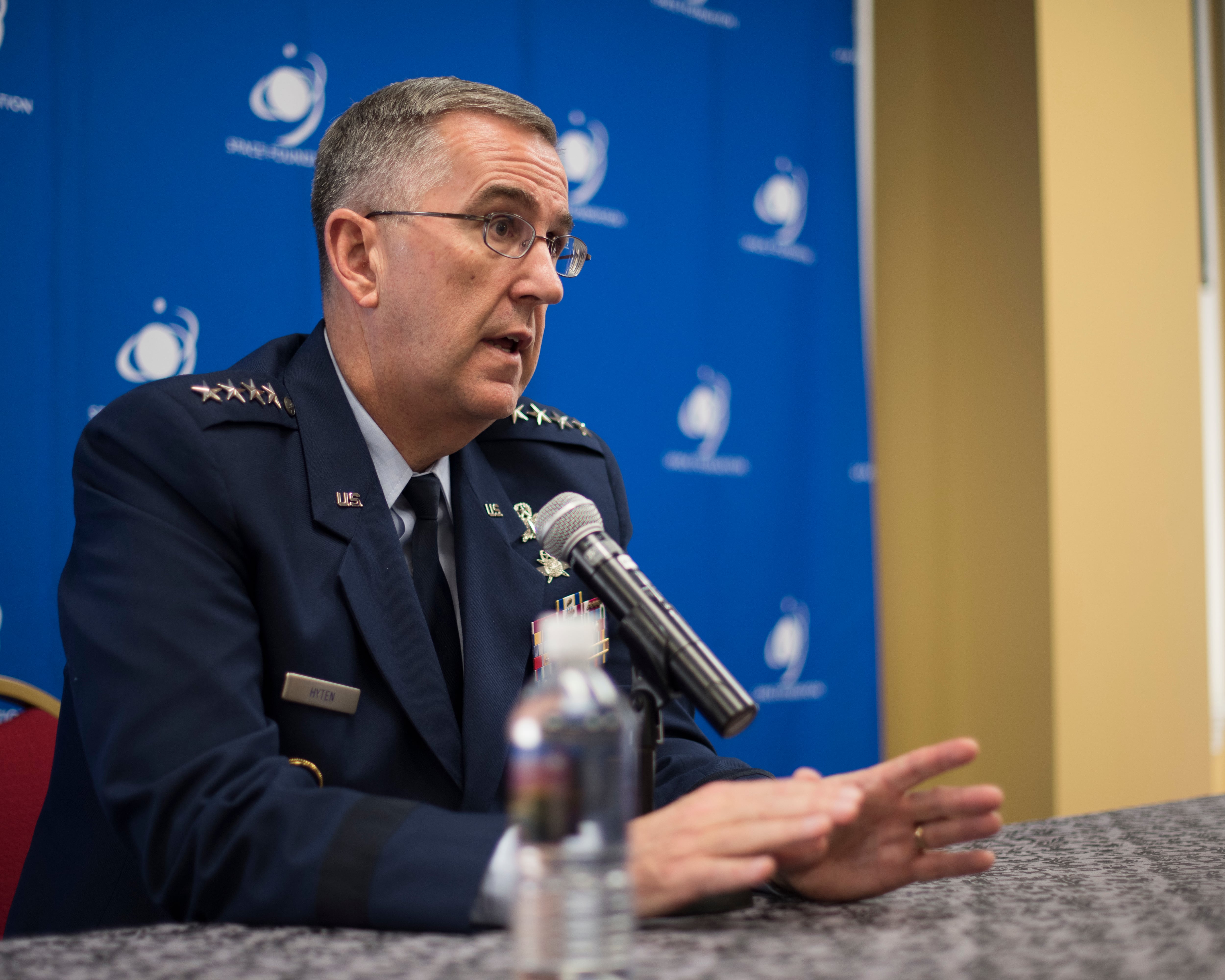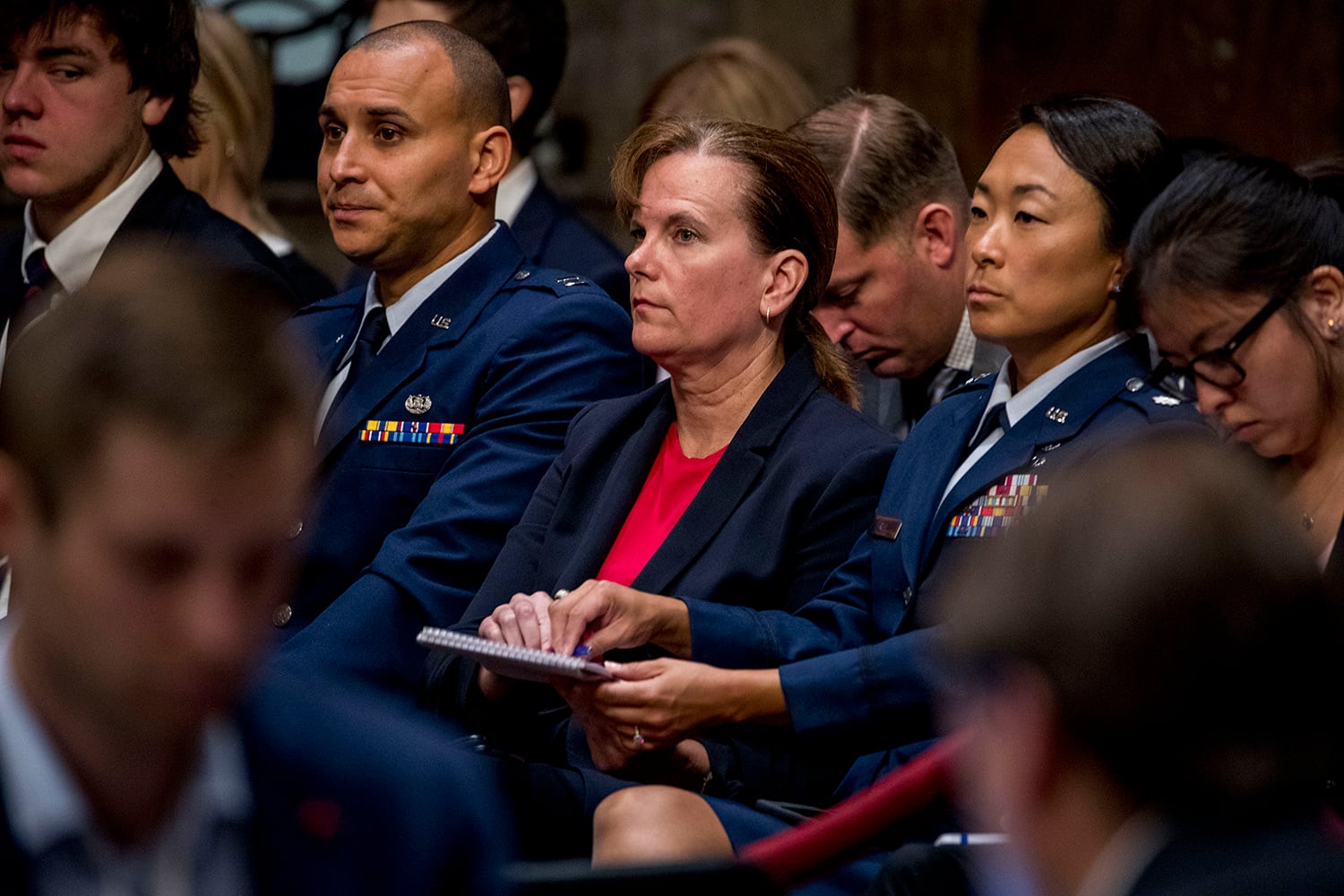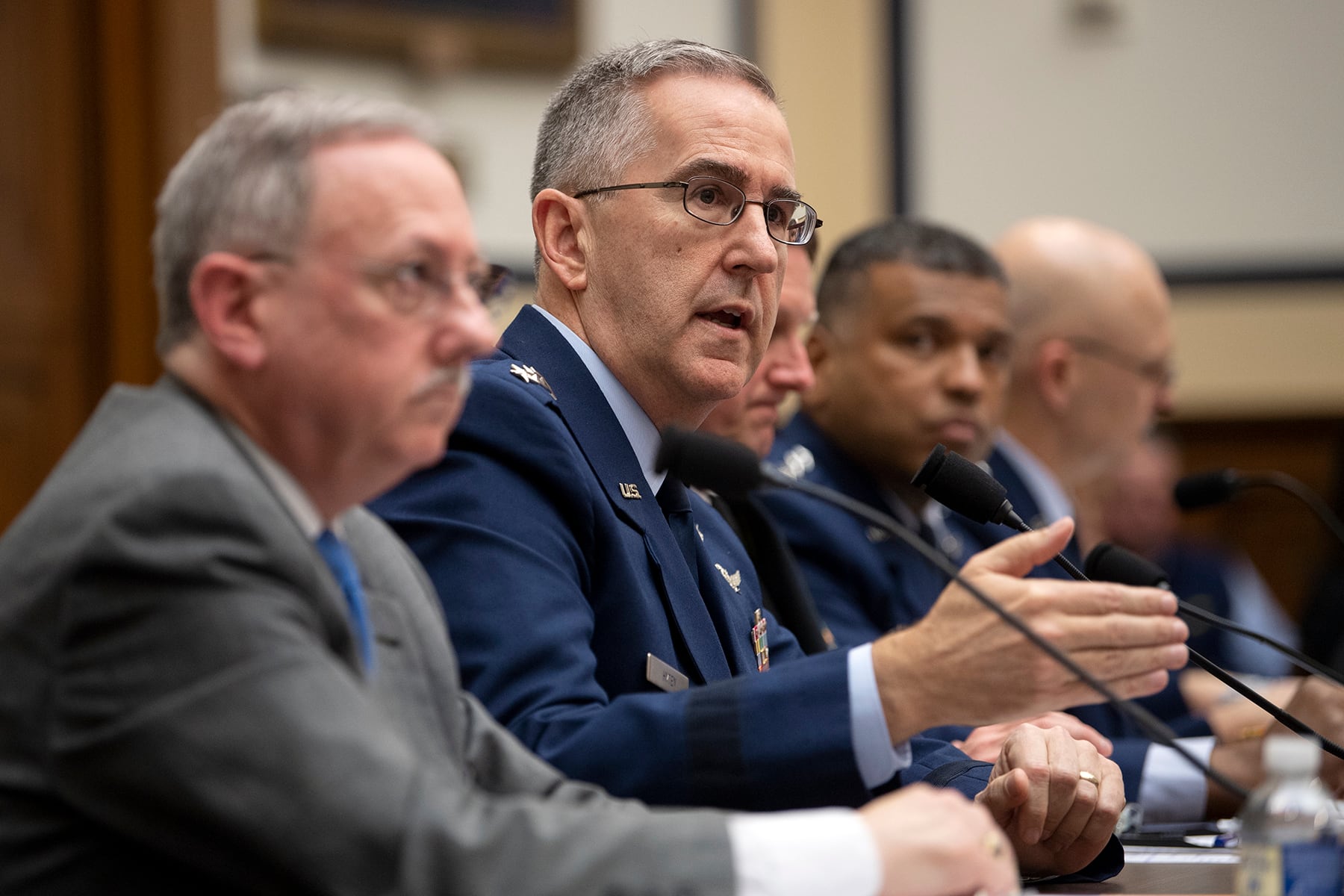Retired Air Force Gen. John Hyten, formerly the vice chairman of the Joint Chiefs of Staff, is awaiting a federal appellate court’s verdict on whether a civil suit against him will proceed to a jury trial on claims that he sexually assaulted then-Army Col. Kathryn Spletstoser in December 2017.
Spletstoser, who was Hyten’s aide during his tenure as head of U.S. Strategic Command, went public with the allegations in July 2019, shortly before his confirmation hearing to become the military’s No. 2 officer. Among multiple allegations, she accused Hyten, who retired in November, of inappropriately touching her in a hotel room during a prominent military affairs conference in California. That claim forms the basis of her civil suit.
Hyten maintains the claims are false, and an Air Force investigation released in August 2019 found no evidence to back up Spletstoser’s allegations. He was therefore not charged or administratively punished and was later confirmed by the Senate as vice chairman.
The retired colonel filed a lawsuit against Hyten in civil court later that year and seeks at least $100,000 in damages for emotional, physical and economic injury. A district court in the Central District of California ruled in October 2020 that the suit could continue, prompting Hyten’s team to appeal.
Lowell Sturgill Jr., a Department of Justice lawyer representing Hyten, on Monday pushed a three-judge panel at the 9th U.S. Circuit Court of Appeals in California to dismiss the case. The government argued that because the alleged incident occurred on a work trip, and while the general was stopping by to discuss work matters, the situation falls under a legal theory known as the Feres doctrine.
Feres dictates that troops cannot sue the federal government for injuries sustained while serving in the military, with the exception of medical malpractice cases. It’s become the core of Hyten’s defense.
RELATED

“Her allegation is the general came to her room and wanted to talk to her about work-related purposes,” Sturgill said at the hearing, which was livestreamed online. “That, along with the other allegations, clearly shows that … her case is that he misused his authority at a military conference in a location where she would not have been” if not for her military service.

But the judges questioned whether the setting of the alleged assault should define the scope of the case, or if Feres doesn’t apply because sexual assault isn’t a reasonable consequence of military operations, such as combat injuries.
“It is a type of activity that is too distinct from military activity to be considered something incident to military service,” argued Spletstoser’s lawyer Ariel Solomon. “The fact that someone did not believe my client is not indicative that they should be immune from suit in their personal capacity.”
If the 9th Circuit opts to proceed with the case, it would mark a rare instance of hearing a military sexual assault case outside of the court-martial system.
RELATED

“Last year, DoD prosecuted 4% of all the unrestricted reports and got a conviction in 1%,” Don Christensen, a retired colonel who served as the Air Force’s chief prosecutor and now runs the advocacy organization Protect Our Defenders, told Air Force Times. “When the DoJ argues that, oh, we have this robust system that holds people accountable, the reality is it doesn’t, so opening up the civil courts would be important.”
It could take three months to a year for the court to rule on the case going to trial, and Hyten’s team could appeal the lower courts’ decisions as far as the U.S. Supreme Court.
Rachel Cohen is the editor of Air Force Times. She joined the publication as its senior reporter in March 2021. Her work has appeared in the Washington Post, the Frederick News-Post (Md.), Air and Space Forces Magazine, Inside Defense, Inside Health Policy and elsewhere.




